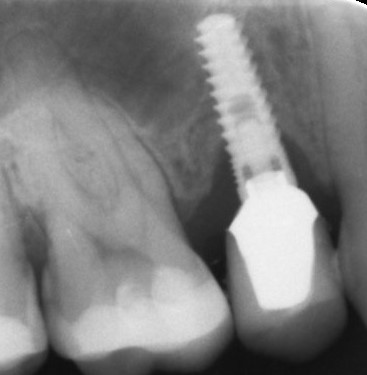19 Oct Dental implants and MRI exams. Free guide here
Dental implants and MRI
For people who are considering getting dental implants and MRI, it may be best thinking it over before going through these two process, one after the other. Based on research, there may be some difficulties linked with dental implants for people who are bound to have an MRI. However, this does not mean that undergoing this medical procedure is no longer recommended. It is only more about any potential risks or biological impacts of MRI to people with dental implants.

Magnets in Dental Implants
In the field of dentistry, the use of magnets has become quite popular and functional. For instance, magnets are applied in prosthetic dentistry and orthodontics, where malocclusions are addressed with the help of these materials. It is also typical for some magnets to be used in removable partial dentures and maxillofacial prosthesis. Overdentures have also become common nowadays, thanks to the compact quality of rare earth magnets as used in dentistry.
When the problem involves…
When the problem involves lateral functional forces, magnetic retention may prove to be beneficial. Parallel supports are no longer necessary. Because there are no critical concerns about the insertion line. With a simple technique related to magnetic retention, the entire process can be completed in less time. This is true for both the laboratory and the dental office. It is just very important that the treatment process is carried out carefully. In this way, damage to the outer metal coating of the magnets is avoided.
In dental implants, magnets are essential to hold the tools securely in place. However, it is worth noting that when people go through MRI, the machine used in the process involves powerful magnets. These material tend to demagnetize the magnets in the dental implant, which may eventually require replacement or repair. Ferromagnetic materials used on implants come with counter-force features, and these keep the appliance held in place. As a result, there are no problems involved even if an individual undergoes MRI.
Issues to Consider
In some studies, the image quality that resulted with individuals having dental implants from an MRI scan was fairly satisfactory. Only 12 of the 16 patients had a decrease in image quality. This was due to the deviation of the magnetic field from the MRI. The MRI is likely to present some features or artifacts from the image that may not be present in actuality.
Plus the magnetic field present in MRI machines may lead to some force that can dislodge an implant. Yet, dental implants that are anchored securely around the tissue may not lead to such problem. With this in mind, it is the implant type that may be considered before a patient undergoes MRI scan. The type of dental implant must not be electrically active. Plus, the materials used must not be sensitive to the magnetic forces present in the machine used for MRI.
Conclusion
If there is no electrical activity associated with the implant, or if the material used is not ferromagnetic. Then a scan after implantation is safe for the patient. However, for a weakly magnetic implant, a waiting period of 6 to 8 weeks should be enough to allow the implant to be held securely in the tissue, which should be safe for MRI scan.
If you are interested in any form of dental treatment , just contact us here: CONTACT
We are waiting you for a Free Consultation at our clinic in heart of Budapest.







Sorry, the comment form is closed at this time.